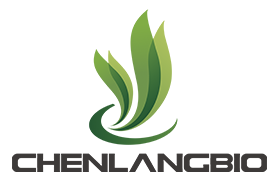The Amazing World of Nicotinamide Adenine Dinucleotide (NAD)
Nicotinamide Adenine Dinucleotide (NAD) is an essential molecule found in all living cells. This coenzyme is crucial for various biological pathways involved in energy production and cellular repair. While NAD has been studied for over a century, its role in health and longevity has gained significant attention over the last decade. In this article, we’ll explore the fascinating world of NAD, including its functions, benefits, and sources.
1. What is Nicotinamide Adenine Dinucleotide (NAD)?
NAD is a coenzyme that plays a vital role in energy metabolism, particularly the production of ATP, the primary energy molecule in cells. It is also involved in other essential cellular processes, such as DNA repair, gene expression, and cell signaling. NAD exists in two forms, NAD+ and NADH, where NAD+ acts as an oxidizing agent, while NADH acts as a reducing agent.
2. NAD+ Depletion Has Negative Effects on Health
Studies have shown that NAD+ levels decline with age, which may contribute to various health problems, including metabolic disorders, cardiovascular diseases, and neurodegenerative diseases. Researchers have also found that boosting NAD+ levels using precursors like nicotinamide riboside (NR) and nicotinamide mononucleotide (NMN) can improve cellular function and increase lifespan.
3. NAD+ Precursors: NR and NMN
NAD+ precursors are substances that can increase NAD+ levels in the body. The two most common NAD+ precursors are nicotinamide riboside (NR) and nicotinamide mononucleotide (NMN). Both compounds are naturally occurring and can be found in food sources like milk, meat, and vegetables. Various studies have shown that supplementing with NR and NMN can boost NAD+ levels, improve muscle function, enhance metabolism, and increase lifespan.
4. NAD+ Boosts Mitochondrial Function
NAD+ is essential for mitochondrial function, the powerhouse of the cell. Mitochondria produce ATP, which is crucial for energy production. NAD+ acts as a cofactor for several enzymes involved in mitochondrial energy metabolism. By boosting NAD+ levels, cells can produce more ATP, which can enhance exercise performance, reduce fatigue, and improve overall energy levels.
5. NAD+ Plays a Role in DNA Repair
NAD+ is involved in DNA repair, which is essential for maintaining genomic stability and preventing mutations. DNA damage can lead to various diseases, including cancer. Studies have shown that boosting NAD+ levels using NR can enhance DNA repair and prevent mutations.
6. NAD+ Boosts Brain Function
NAD+ plays a crucial role in brain function, particularly in the prevention of neurodegenerative diseases like Alzheimer's and Parkinson's. Studies have shown that boosting NAD+ levels can improve cognitive function, including memory, attention, and learning. NAD+ also activates sirtuins, a family of proteins known to promote longevity and improve brain health.
7. NAD+ is Involved in Immune Function
NAD+ is involved in immune system regulation, particularly in the activation of immune cells like T cells and B cells. Studies have shown that boosting NAD+ levels can enhance immune function, reduce inflammation, and improve overall health.
8. Aging and NAD+ Depletion
Aging is associated with a decline in NAD+ levels, which may contribute to various health problems, including sarcopenia, a decline in muscle mass and strength, and metabolic disorders. Researchers have found that supplementing with NAD+ precursors like NR and NMN can increase NAD+ levels and improve muscle function in older adults.
9. Sources of NAD+
NAD+ can be found in various food sources, including milk, meat, fish, and vegetables. However, most of these sources contain small amounts of NAD+. NAD+ supplementation is available in the form of dietary supplements, such as nicotinamide riboside (NR) and nicotinamide mononucleotide (NMN).
10. Conclusion
Nicotinamide Adenine Dinucleotide (NAD+) is a crucial coenzyme involved in various biological processes, including energy metabolism, DNA repair, immune function, and brain health. NAD+ depletion has negative effects on health, particularly with aging. Supplementing with NAD+ precursors like nicotinamide riboside (NR) and nicotinamide mononucleotide (NMN) can boost NAD+ levels and improve various health outcomes, including metabolic function, exercise performance, and lifespan. Incorporating NAD+-rich foods in the diet can also support optimal health and longevity.

